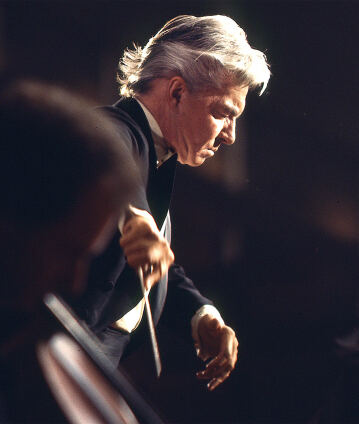Karajan dirige les symphonies n° 4 à 6 de Tchaïkovski

Peu de compositeurs ont écrit une musique aussi débordante d’émotion que celle de Piotr Tchaïkovski, dont les œuvres unissent un art suprême de la composition à l’expression des souffrances personnelles de l’artiste. Grand maître de l’ivresse sonore et de l’emphase, Herbert von Karajan était un interprète idéal de Tchaïkovski. Dans ces enregistrements de 1973, il dirige les trois dernières symphonies, dont la célèbre Pathétique.
Berliner Philharmoniker
Herbert von Karajan
© 1973 Unitel
Artistes
Nos suggestions
- Karajan dirige les symphonies n° 2 et n° 8 de Beethoven
- Karajan dirige les symphonies n° 1 à 4 de Brahms
- Karajan dirige les symphonies n° 1 et n° 4 de Beethoven
- Concert, conversation et classe de maître : Karajan dirige la Symphonie n° 5 de Beethoven
- Herbert von Karajan et Evgeny Kissin au concert de la Saint-Sylvestre 1988
- Herbert von Karajan et Mstislav Rostropovitch dans « Don Quichotte » de Strauss